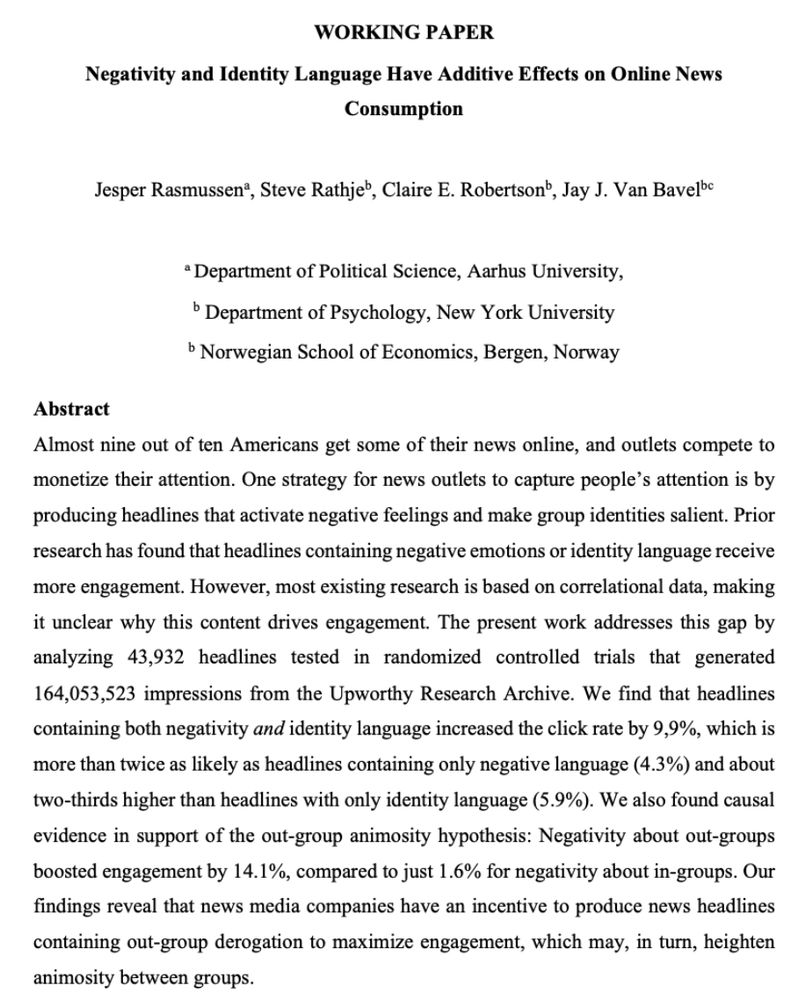

KEY FINDING: Negativity + identity language is particularly effective at generating engagement—and even more when targeting out-groups
With @steverathje.bsky.social, @crobertson500.bsky.social , @jayvanbavel.bsky.social
🧵👇

KEY FINDING: Negativity + identity language is particularly effective at generating engagement—and even more when targeting out-groups
With @steverathje.bsky.social, @crobertson500.bsky.social , @jayvanbavel.bsky.social
🧵👇
I show that *who* hate targets has limited effects on support for hate speech laws. People simply just want to restrict “high-severity violations" (e.g. threats) no matter who’s targeted (osf.io/j4nuc)


I show that *who* hate targets has limited effects on support for hate speech laws. People simply just want to restrict “high-severity violations" (e.g. threats) no matter who’s targeted (osf.io/j4nuc)
PAPER: bit.ly/3UuKZJb

PAPER: bit.ly/3UuKZJb


